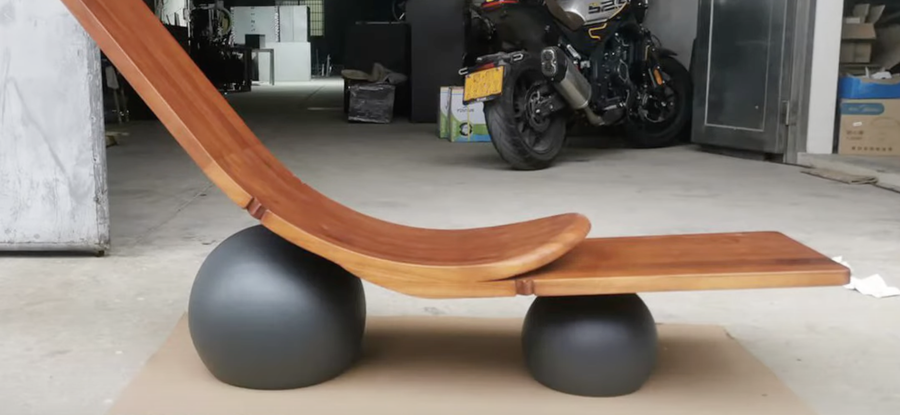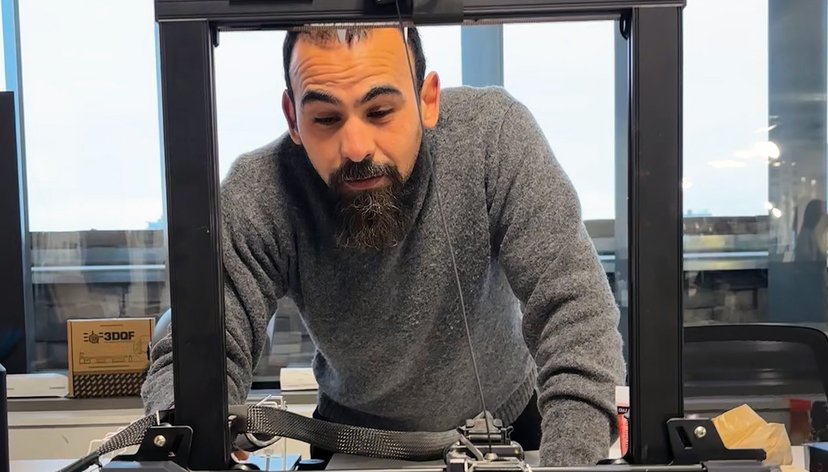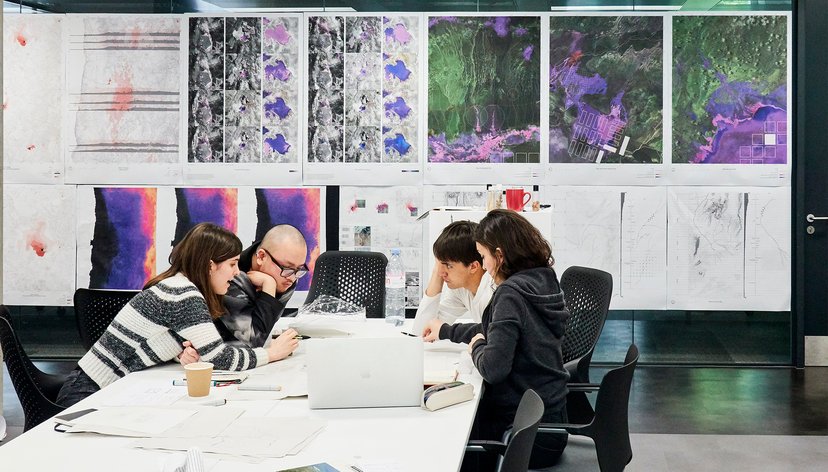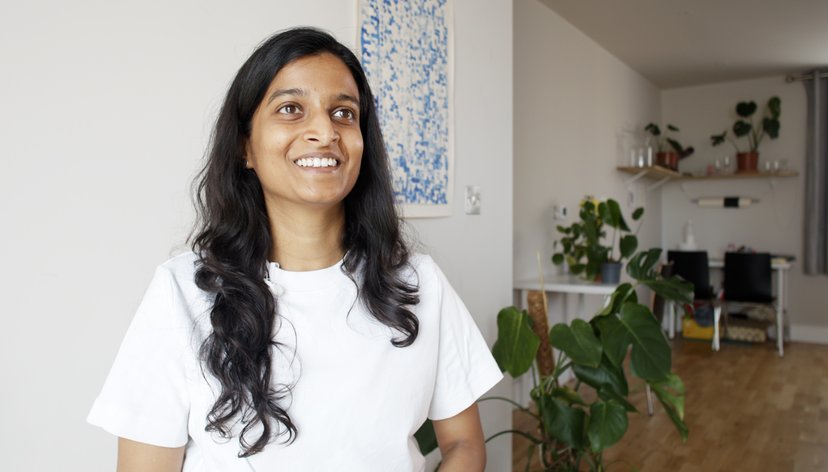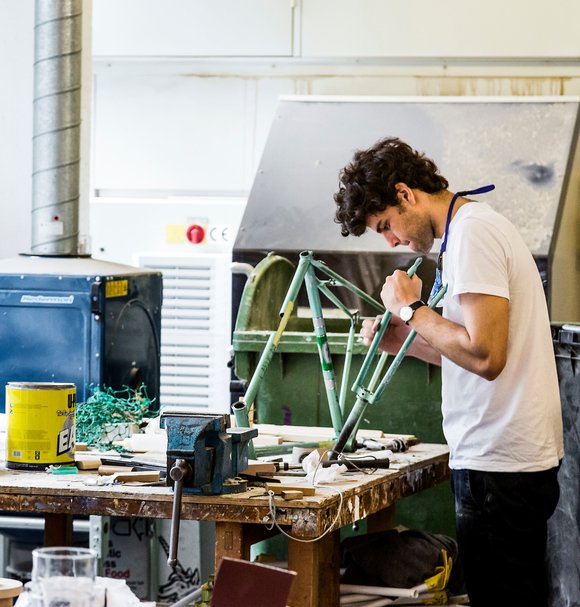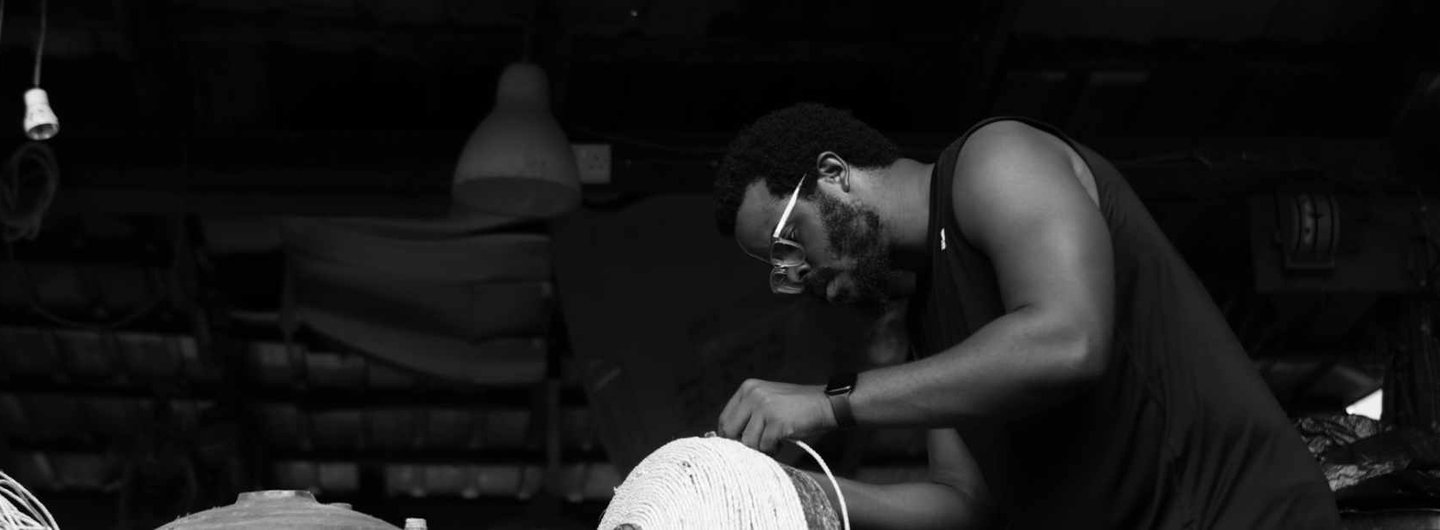
Key details
Date
- 17 July 2025
Read time
- 4 minutes
Nigerian-American designer Myles Igwebuike went from banking to curating Nigeria’s first pavilion at the London Design Biennale. A graduate of the RCA, his collaborative, heritage-rooted approach is reshaping how we think about design.
Ever since Myles Igwebuike was a child, he was fascinated by how things worked. “I was one of those kids who would deconstruct a remote control and then put it back together again,” he says. That early curiosity has served him well. An alum of the Royal College of Art’s Design Products MA, Igwebuike is now a leading voice in innovative and global-facing design, and this year he was invited to curate Nigeria’s inaugural federal pavilion at the London Design Biennale.
But Igwe didn't start out in a creative field. He grew up in what he calls an “intellectual household” between the United States, U.K. and Nigeria—his mother is a lawyer and his father a data analyst—and this early emphasis on professional success initially led him into banking. “I was also just really good at economics,” he adds. During this period, he worked under the tutelage of West Africa's largest luxury group, Polo Luxury, and went on to lead operations for international brands including Rolex and Cartier. This experience in high-calibre, high-turnover environments shaped his understanding of global systems, something that continues to inform his design philosophy today. “I would never negate that experience—it introduced me to capitalism and the way the world works,” he reflects. “But I knew I wanted to create from a place of innovation and curiosity, rather than a place of extraction.”
“The RCA was a beautiful timestamp in my life. It was a supercharged incubator.”
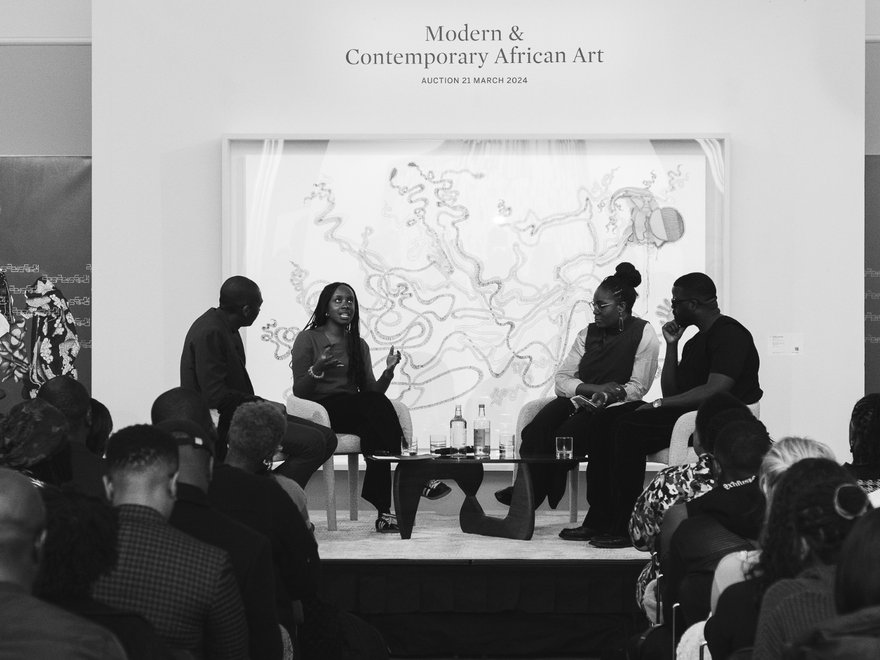
RCA Africa make history as the first student society to take over Sotheby’s London
Perhaps because of that earlier life in an individualistic, profit-driven industry, collaboration is now at the heart of Igwebuike’s design ethos. “I believe collaboration is ancestral,” he says. “During my early research, I realised that many traditions, rituals, and cultural signifiers were collectively made. When I think of identity, I don’t think of ‘I’—I think of ‘us’.” He explores this thinking through co-design, seeing it as a methodology for building new worlds and new ideas. “We are better together than apart,” he adds. “Co-creation is how we build futures that feel expansive, inclusive, and truly innovative.”
Igwebuike’s pivot into design began as a self-taught process, but was soon shaped by the mentorship of renowned designer Titi Ogufere, the first Afican president of the International Federation of Interior Architects/Designers (IFI). “I was able to shadow her workflow and really learn the intricacies of spatial design,” he says. “I began translating my curiosity into a spatial investigation.”
Eager to formalise his growing creative practice, he enrolled in the Design Products MA at the RCA, graduating in 2024. “My first degree was in international economics, but it was important for me to go to design school to refine this thing I’d always been drawn to,” he explains. “The RCA was a beautiful timestamp in my life. It was a supercharged incubator. I’ve always been multidisciplinary, and the RCA didn’t constrain me by medium, it let me explore.”
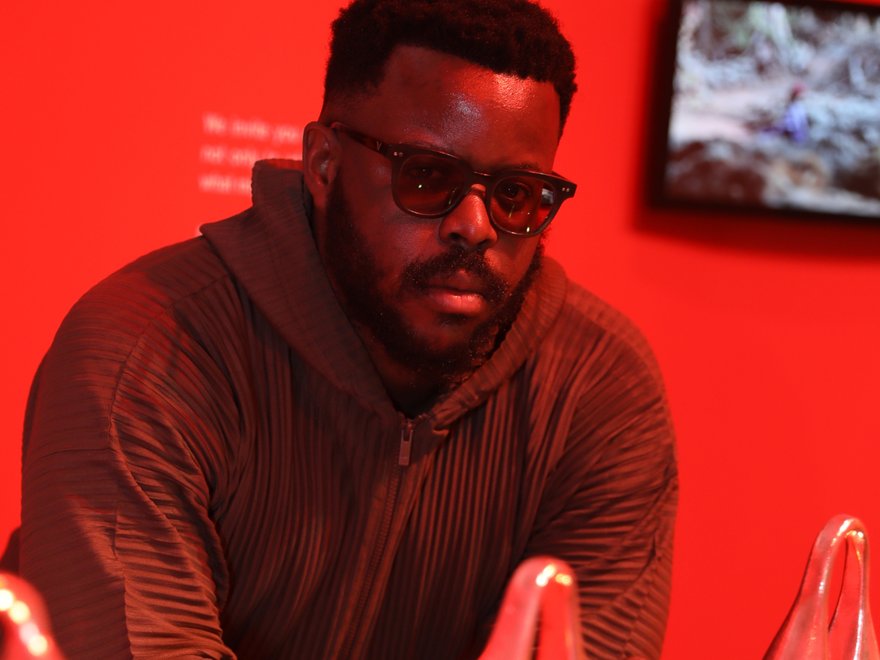
Myles Igwebuike at Nigeria's inaugural pavilion at the London Design Biennale
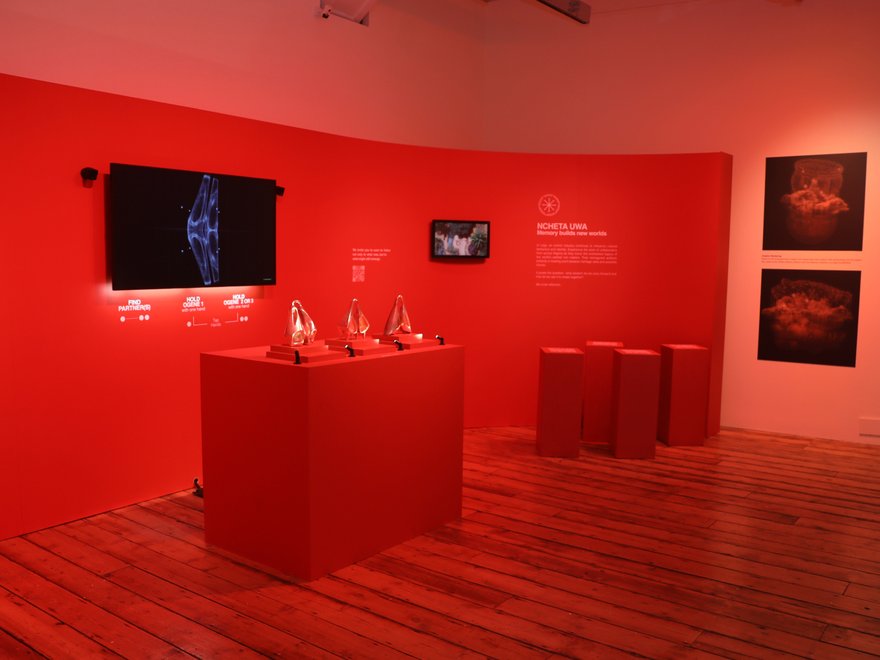
Nigeria's inaugural pavilion at the London Design Biennale, curated by Myles Igwebuike
While at the RCA, Igwebuike not only interrogated his own creative voice, but also the institutional frameworks around him. “I was the only African student in my programme,” he says. “So it was important to find ways of integrating my heritage within the RCA’s historical structures.” He went on to found the college’s first African Society in 2024, an initiative that isn’t just about representation; “It’s about visibility, agency, and building a shared space for dialogue, experimentation, and care,” says Igwe. The society is already creating a ripple effect and in its first year made history as the first student society to take over Sotheby’s London, hosting an evening that brought together over 300 students of African descent from across London. The event featured a panel discussion, a social mixer, and an immersive sound installation.
For Igwebuike, the creation of the African Society is one of many ways that he seeks to create space for dialogue. His practice is embedded with the idea that design is a tool for world-building—what he calls “reassembly.” “As a designer trained by the almighty RCA, I’m taught to be solution-oriented. And with my background in finance, that orientation was already there. But I’m not just interested in solving problems, I want to use design to spark ideas.” That mindset fed directly into his curation of Nigeria’s debut pavilion at the London Design Biennale, which was supported by Nigeria's Federal Ministry. Titled “Hopes and Impediments: Becoming Ourselves, Together”—a reference to Chinua Achebe’s seminal essay collection—the pavilion framed design as an act of reassembly, with co-creation as a central methodology.
“To be a good designer, you have to stay curious; I will be a student for the rest of my life.”
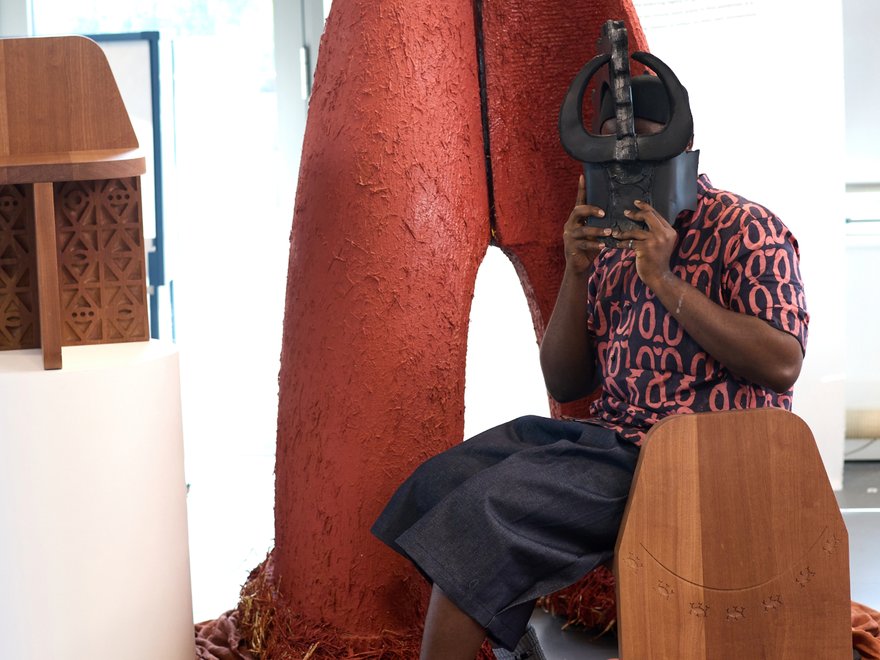
Myles Igwebuike presents his MA Design Products grad show at RCA2024
Curated by Igwebuike and produced by Itohan Barlow, the exhibition embodied his collaborative process, bringing together institutions such as the Museum of West African Art and the Centre for Memories in Enugu. “This exhibition was purposely open-ended,” he explains. “It was important for people to feel invited, to take something away and create their own ripple effect.”
The significance of the moment wasn’t lost on Igwe: this was the first time Nigeria had been represented at the Biennale. And it comes just ahead of a major moment for Nigerian design on the global stage: in October, Tate Modern will open an exhibition dedicated to the country’s modernist design movement. Is this wave of interest a sign of broader shifts? “I’m really excited to see this appetite in West African design growing,” he says. “Nigeria has always had a radical design approach. It’s just that the world is finally catching on.”
With a landmark year behind him and an ambitious slate of projects ahead, Igwe remains grounded in the mindset that has defined his journey so far. He reflects on how his time at the RCA continues to shape his path, but insists that learning never stops. “To be a good designer, you have to stay curious; I will be a student for the rest of my life,” he says. “That’s the key: to keep observing, absorbing, and approaching everything with childlike wonder.”
